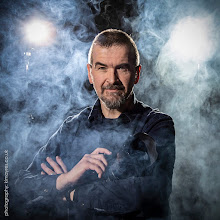A drop in the ocean
The film follows the annual cycle of emperor penguins as they breed, incubate the egg, care for their young and damn near starve and freeze to death in just about the harshest environment on Earth – Antarctica. The penguins are imbued with deep emotions by the narrator (Morgan Freeman) and the accompanying soundtrack. Although these penguin feelings are speculative, and initially I found the sentimentality quite irritating, it did set me thinking that actually they probably must experience intense emotion, or something similar. The drive to try and keep their eggs, then young, alive in temperatures of minus 60 degrees while waiting for their partner to return from feeding, before setting off on a 70 mile journey to the coast so that they can finally eat, and eventually return to their spouse and offspring, is clearly an extremely powerful one. And if it is emotionally based, then the vast majority of these penguins must lead thoroughly miserable and devastating lives as chicks and partners are lost to predators and the environment.
Nature doesn’t require the penguins to have a good life, only that enough of them survive so that the species continues. And if their actions are driven by emotions then the fact that tens of thousands of generations have been repeating this endless cycle for hundreds of thousands, if not millions of years is incredibly depressing.
Are we humans any different? We might have distractions such as DVDs, work, alcohol, religion and daytime soaps, but the essence is the same. The quality of our lives is unimportant, so long as enough of us survive to pass on our genetic code. “Survival of the Fittest” sounds like such a noble, strong and powerful thing, and yet in reality it’s just “survival of those who manage to scrape through by the skin of their teeth.”
How long do we keep repeating the cycles of life with no ultimate meaning beyond the continued existence of strands of DNA?
I mean, if we were to say 100 years – more than most people can expect to live – was the equivalent in length of one millimetre, then 10,000 years (as far back as human civilisations can be traced) would be represented by 1 metre. Just over 6 kilometres would take us back to the time of the extinction of the dinosaurs – think for a moment about how far 6km, or 4 miles is, compared with 1mm. Multiply that by a factor of 10 and you get as far back as the first complex organisms, with the formation of the Earth being something in the region of 42km back.
And the best any of us can hope for is less than a single millimetre on a stretch of road over 120 miles long since the Big Bang.
Ever felt that your life was completely and utterly insignificant?
This afternoon I was out bramble hunting with the children and, like last year, Meg ended up with more smeared over her hands, face and clothes than in the tub. We came home triumphant, with about 3lbs of usable berries to be converted at some point into Bramble Crumble and Bramble Ice-Cream and after getting washed we sat down to a Sunday roast, lovingly prepared by Maggie. And then we were treated to a surprise.
Maggie had made up thick fruit smoothies – bananas, strawberries, blueberries and a dash of pineapple juice - and put them through the ice-cream machine. Pure fruit and nothing else; as delicious as ice-cream yet a fraction of the calories and actually good for you.
And for a brief moment in an infinite universe I get to enjoy good food, wonderful children and a loving wife.






Post a Comment